At the depths of it, the reason most people won’t go vegan is the same reason that vegans can’t understand why most people won’t go vegan. This is a call for accountability and awakening for those of us who believe ourselves to be responsible and aware.
When I first conceived of Bite Size Vegan, I had no intention of making content for or speaking to vegans. And I, in fact, expressly wanted to not create content for vegans and I certainly did not ever want to speak in front of a group of vegans. I mean don’t get me wrong, I’m sure you’re all lovely people—it’s just my initial intention was to focus exclusively on reaching non-vegans.
I figured we vegans already know to be vegan. We got it. And it seemed to me that so much of the information on social media and elsewhere that I’ve seen about veganism was either created with a vegan audience in mind or delivered—whether intentionally or not—through a vegan lens. And some of it seemed to have evolved over time into this internal commentary of sorts—something of a vegan human centipede, just this cycle that kept happening.
My goal was to reach as many people as I could with accessible and reliable information. I wanted to cut through all of the stigmas and stereotypes. I wanted to show that veganism, far from this extreme ideology that it appears to be from the outside, is just simply aligning our actions with the values that we already have.
I believed—and still wholeheartedly believe—that when it comes to core beliefs, most people are already vegan.
Most people don’t want to cause the suffering and death of innocent beings. Most people would recoil in horror if they were given a knife and told to, “Please slice the throat of this cow who is standing before you”. There’s a reason that we keep our slaughterhouses so far from our tables, and we pay other people to kill on our behalf.
The distance allows us to maintain this self-image that we’re good, we’re decent people—that we’re animal lovers.
And it’s true. We do start life as true animal-lovers. We do. It’s obvious children love animals, yet from very early on, we begin to lose touch with our inherent nature. We’re indoctrinated into what I call “The Greatest Lie Ever Told.”
The truly astounding thing, is that this is what unites humanity—this universal delusion drives good decent people, loving people, animal lovers to participate in brutal, horrific acts that they would otherwise find appalling.
What’s even more striking is that, when this behavior is challenged, these same good and decent people will defend with righteous indignation the necessity—and even the civility—of the atrocities that they’ve never even witnessed.
I mean it’s really astounding—animal lovers eating animals.
Good and decent people who rescue dogs and cats, sign petitions, cannot bear the sight of violence against any animals. Yet, these very people will passionately and vehemently defend the systematic brutalization of trillions of animals, justifying the very abuse in the footage that they cannot bring themselves to watch.
Now I’m not saying this so that we “enlightened vegans” can hold a group shame session against the “ignorant meat-eating masses” while we revel in our superior awareness and our astounding level of integrity. That line of rhetoric is dangerously appealing, and it’s all too easy to fall into. And it’s exactly what I wanted to consciously avoid in my activism.
I do believe that bonding over a shared experience of awakening can have immense value. As fantastic as it would be, when we go vegan it doesn’t stop the cultural messages, the societal and the familial messages that bombard us day in and day out. Sometimes speaking with and even venting to someone else who “gets it” provides a much-needed outlet and reinforces what we know to be right.
But when it becomes our primary focus—even assuming the guise of productive action—it feeds into the very delusion we believe we have escaped. More importantly, it underestimates the profound power and reach of this lie.
We are up against a force that the true breadth and depth of which is beyond our comprehension. It’s not even something that we can clearly define because we were raised in its very embrace—it’s like trying to grasp the air around us. It’s always been there.
You may see by now why I struggled so long to find the words to speak about veganism. I remember as a child and an adolescent feeling very small against the enormity of the suffering in the world and I was baffled by how everyone around me seemed to go about their daily lives as if everything was okay—while I felt intensely aware that every second of every day, all around me and all around the world, countless innocent beings were living in absolute terror, abject misery, and incomprehensible pain.
Needless to say, I was a very intense kid. I just simply couldn’t shake the sense that something was profoundly wrong.
I believe that most children possess a level of empathy that is largely absent in adults. We eventually sever our empathy out of necessity so we can learn to eat the animals we love. Living with that level of dissonance requires protective measures to blunt our awareness. It’s a survival mechanism.
Of course I didn’t comprehend all of this at the time. But looking back later in life, I was better able to understand the astounding resistance that many, if not most people have to veganism, and what was really driving the bizarre objections, non-sequitur arguments, or the abusive language that we receive. And that understanding became my starting point for Bite Size Vegan.
So up until that point—and, to be honest, sometimes still—anytime I tried to talk about animals or the environment or really any element of what I now recognize as veganism, I would either freeze up completely, or I would explode in this rousing display of pent up frustration. And surprisingly enough neither of these approaches proved particularly effective.
While my floundering is somewhat amusing in hindsight, at the time I felt overwhelmingly frustrated, and defeated, inadequate, and more than anything, that I was failing those who needed me to be effective. So, I read books, anything I could find that was even remotely connected to effecting significant change, but I was still left uncertain about what action to take.
As no one I knew even thought anything was wrong, I had no idea who to turn to for advice. I didn’t even know there were other people out there fighting the same battle. But with the rise of the Internet allowing interaction with people all over the world that we’d never had before, I found that apparently my go-to strategies of either freezing or exploding were not these signature moves that I’d believed them to be.
While every journey to veganism is unique—it’s shaped by an individual’s circumstances, their background—one experience I’ve seen time and again is the struggle to communicate about veganism to non-vegans.
It’s almost like the second that we step onto “the vegan side,” the non-vegan mentality that we’ve had our entire lives is suddenly incomprehensible. I’ve received emails from hard-core meat-eaters who—after making some powerful connection—did a complete 180, stormed into the kitchen, began throwing away everything that even remotely contained the smallest trace of animal ingredients, much to the confusion and horror of their spouse.
And even then—in that millisecond after something finally clicked—they find that they’re completely unable to explain themselves. So they reach out to me—essentially a complete stranger for advice. How do they talk to this person who they’ve known for years? How do they cope when their loved one refuses to see the truth when they continue to eat what is now so clearly to this person the murdered body of an innocent being and how do they deal with the heartbreak of loving someone they no longer understand?
Just think about that. How such a profound shift can occur—and so suddenly—that reaching out to a complete stranger on YouTube is less daunting than talking to someone that you’ve lived with for 20 to 30 years. That’s the power of this thing.
As the channel grew, I started receiving messages from vegans saying that the videos were helping them find the words to speak to non-vegans—what they’d been trying so long to communicate.
Apart from the utter astonishment of hearing I was somehow providing for people what I had been searching for for so long. These messages provoked a subtle, but important shift in my mindset. In my efforts to find these effective ways to communicate the multi-faceted basis for veganism in a simplified presentation that was accessible to non-vegans, I was inadvertently creating something of a blueprint for other vegans to follow.
This really shouldn’t have been such a revelation for me. After all, it was finding Gary Yourofsky’s speech that finally gave me the words and the guidance that I’d been looking for so long. Here was this man saying everything that I’d been trying to say, and in a way that was so agreeable and so logical.
So I studied him. I watched all of his talks again and again, over and over. I decided to get serious about my activism, and I launched Bite Size Vegan, despite all of my lingering fears and total inexperience. In the beginnings, my videos largely consisted of me relating quotes from Gary and other activists, philosophers, doctors, and the many books that I’d accumulated. I stood on their shoulders for a while.
It was terrifying, it was messy and a complete technical disaster—they’re still on my channel—you can see them. But I just kept trying and I just adjusted my approach along the way. I continued creating content for non-vegans but now with this additional purpose of serving as a teaching resource for vegans as well.
And in case you’re wondering why I’ve gone on this tangent about my channel—the reason that I’ve chosen to write this talk in the first place, despite this very real risk of not even making an ounce of sense—I mean, it would have taken far less time and consume far less mental energy and overall have been much easier for all of us If I had simply written a speech on the importance of taking action in any form—with an emphasis on the value of every unique voice being needed and complete with some inspiring call to action!
But I didn’t do that.
It’s the thought process behind the decisions for my channel that I wanted to try to relay in this speech. This is not to say that I have achieved any kind of activism enlightenment or that I even know what I’m doing. But when I was invited to speak here, I was faced with the challenge of crafting a talk for vegans. And I wanted to take full advantage of this—I wanted to not just address the struggles, but try to go deeper. This isn’t anything I’ve ever talked about on my channel. This not something I’ve ever really tried to put into words before.
But one relatively universal struggle for any vegan is learning how to live vegan in a non-vegan world— whether it is what to tell their friends when they first make the switch, how to navigate social situations, how to speak up or get involved in activism, how to not feel so incredibly alone, how to get over being so frustrated with people’s inability to see the truth and disgusted by humanity as a whole and enraged by the absurd level of corruption and the heartbreak of the unfathomable number of innocent beings that we so callously murder all as we hurtle towards our own destruction, taking the whole planet along with us.
As challenging as it can be for someone to go vegan, being vegan is traumatic.
Before I get too cerebral again, I’m going to briefly explain my own thought process for content creation. This can give us a practical example of how to approach communicating with non-vegans.
When I research a script for a video, I always try to think about my audience, my message and my purpose. I try to keep in mind whom I’m trying to reach, what message I’m trying to reach them with, and what it is that I’m trying to accomplish.
When I’m writing a speech there are also additional considerations to have: Is it a University where most of the audience is non-vegan? Is it a VegFest where attendees have at least expressed an interest? Are there cultural variants that I should look into?—Like when I did a speech in Portugal or Ireland. Is it a formal lecture setting that calls for in-depth research, animated slides, and a cited resource page, or is it on a street outside of a slaughterhouse, calling for words from the heart?
As challenging as it can be for someone to go vegan, being vegan is traumatic.
Emily Moran Barwick
tweet this
Of course I’m never gonna know every aspect of my audience or the situation, but these considerations help me craft the message the best way that I can. It’s not about pandering or equivocating—I’m never gonna compromise the truth. It’s about making every decision about my presentation based on what will most effectively convey the message.
When I made a video about halal and kosher slaughter, I decided not to show any graphic footage, despite the astounding array of undercover videos from halal and kosher slaughterhouses. I used this same process to come to this decision. My intended audience was primarily individuals who follow halal and kosher practices. My purpose was to prompt a reconsideration of these activities, ideally with the decision to go vegan. And my message was that killing is never humane, kind, or holy.
If my over goal is to help Jewish and Muslim individuals make the decision to go vegan, it’s vital that I am diligent in my research and respectful in my approach, especially given that I am neither Jewish nor Muslim.
But I didn’t withhold graphic footage simply to not upset my audience. Again, it’s not pandering. The horrific abuse in those videos is a gross violation of halal and kosher principles. So using it as an example of those practices, or even more as a reason why they’re inhumane, is not only inaccurate, but in the end it completely negates my own purpose.
If I want to reach people who partake in halal and kosher slaughter and I show them brutal footage in violation of halal and kosher slaughter, what have I accomplished? Most Jewish and Muslim individuals will be equally, if not more, outraged by the violations in these videos—and the result is never to cease halal and kosher slaughter, but to tighten up regulations. So by so inaccurately portraying an important vital aspect of their faith, I’ve further closed any door to discussion or reconsideration.
I do the very best that I can to see from the perspective of the person for whom I want to reach. Were I to have been raised in a Jewish or Muslim household and remained devout, what kind of approach would I be most open to?
Now, of course, I don’t always make the right choices, and I certainly never please everyone. And trust me, being on YouTube, I am very aware when someone is not pleased. But I do receive promising feedback—and honestly, the negative feedback is equally helpful. That’s how I am able to adjust as I go along. It’s impossible for me to know how to improve if I don’t listen to what isn’t working.
So that’s an abridged overview of this basic process. In real life application, it lacks any kind of clarity or organization—if that’s what that was. I always laugh to myself when people comment that they wish they could be as composed and well-spoken as I am. They don’t see the hours that I’m anguishing over these decisions.
At the depths of it, the reason most people won’t go vegan is the same reason that vegans can’t understand why most people won’t go vegan.
What appears to be this hopeless division is simply two sides of the same lie.
Not only are we vegans not fully awake, we’re still feeding into the deception that we detest.
Emily Moran Barwick
tweet this
In the same counter-intuitive manner in which veganism becomes more confusing the longer we’re vegan, when the false bottom of eliminating meat, dairy, and eggs drops out and we see these seemingly infinite forms of exploitation. In my admittedly brief time as an activist, my understanding of what drives this overwhelming resistance to veganism, has also grown in its complexity.
Through this largely unintentional progressive intensification of my process, I’m finding in the depths of every topic I address the threads of this illusive commonality. The web pervasively and inextricably entangled in every aspect of existence. Yet so intangible as to almost completely escape our awareness: The Greatest Lie Ever Told.
At the depths of it, the reason most people won’t go vegan is the same reason that vegans can’t understand why most people won’t go vegan. What appears to be this hopeless division is simply two sides of the same lie.
Not only are we vegans not fully awake, we’re still feeding into the deception that we detest.
Perhaps we come to mock the ignorance of non-vegans, to ridicule their blind adherence to blatant falsehoods.
Perhaps we tell ourselves “we get it,” there’s no reason to subject ourselves to the suffering of animals, to go to slaughterhouses, watch the truth of their experience in the videos. After all, we are not contributing to that any longer.
Perhaps we just withdraw completely into our self-contained vegan communities, unable to deal with anyone who cannot see the truth. And we find comfort in this insulation—our conversations take on a new depth of understanding. And the non-vegan world becomes more and more alien. Maybe we resolve that we’re going to “show them the truth” and if they can’t handle it, it’s simply another sign of their willful ignorance
Perhaps we decide to find out what is the most effective form of activism, and we focus on critiquing and debating. If we can just get the right approach or at least stop others from giving veganism a bad name maybe we can make a difference. Maybe we don’t even realize that these debates becoming circular, their content slowing sliding from critique to attack.
And when what we feel are our monumental efforts continue to go nowhere, maybe we just double down, we dig deeper, running as fast as we can…in place. Or maybe we give up entirely. Or maybe we retreat entirely into the comfort of the vegan insulation. Maybe we never even left.
If we want the world to confront the truth, we must do the same, no matter how daunting.
Yes, we already know—or we think we do—but if we, the ones who claim to feel their pain refuse to look, how can we expect the rest of the world to do it?
Emily Moran Barwick
tweet this
These are only some of the ways that we can feed into the lie. How we can scream at the wall and we can wonder why there is no change. We mock the blind adherence to the very delusion that we continue to inhabit. Laughing from within the system itself.
We separate ourselves from non-vegans—perhaps we even feel ourselves above reproach. And in the end, we’re less able to effectively communicate the importance of veganism. We reduce our impact and we slow any change. And in our frustration with non-vegans for not looking in the mirror and taking responsibility, we are doing the exact same thing.
But if we can open our eyes, raise our awareness of the lie in our own lives, we have a better chance at progressing, rather than treading water.
This is a continual process of self analysis, of growth and change, of putting thought into our action, and taking action, even when we may be mistaken. Because we’re gonna learn from the outcome. And at least we’re trying.
If we want the world to confront the truth, we must do the same, no matter how daunting. Nothing we can experience will ever equal what the animals are experiencing. And they don’t have the convenience of insulation. They deserve us at the very least to bear witness. Yes, we already know—or we think we do—but if we, the ones who claim to feel their pain refuse to look, how can we expect the rest of the world to do it?
This isn’t about sitting and watching hours of brutal footage. That too can be circular—it’s not productive. It’s not about berating ourselves, or lamenting the impossibility of everything. But we make a grave error when we fail to ourselves stay connected to the truth. To pull ourselves, time and again, further and further out of the lie in which we were born, bred and raised. That we ate, drank, and breathed in every moment. The lie that continues to surround us.
I include myself in this, I always find more and more ways in which I am still so very asleep.
This is not easy work. But in the extreme difficulty of this process we may finally come to understand why, exactly why it is that non-vegans cannot or will not see. Because their resistance is our resistance. And we best remember that. The pain of accountability. The pain of discovering that we are not the people we believe ourselves to be, want ourselves to be, and desperately need ourselves to be.
The good news is, we’ve awoken once already. At least in part. And our only options are to move forward, or stay forever asleep. The choice is ours. I’m going to keep fighting. Messily. Imperfectly. Partly awake and mostly asleep. But kicking and screaming with all of my might.
I hope you’ll join me. Thank you.
If you found this video impactful please SHARE it far and wide on all platforms. You can use the share buttons below this post, and for Twitter, click the pre-made tweet links found throughout the text.
If you would like to support Bite Size Vegan in creating free, educational resources about veganism, please see the support page.
— Emily Moran Barwick


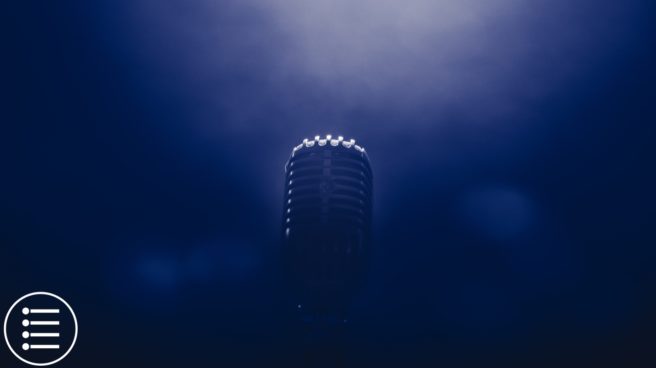
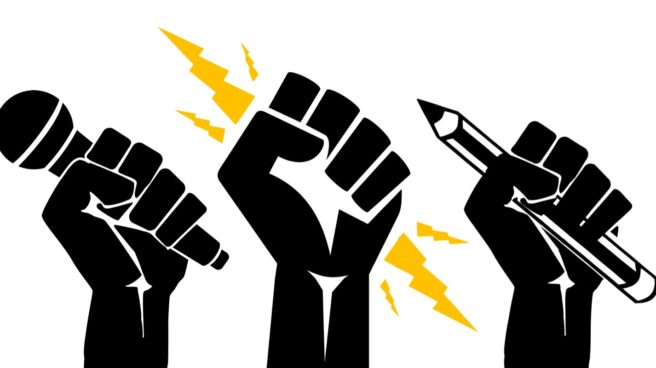
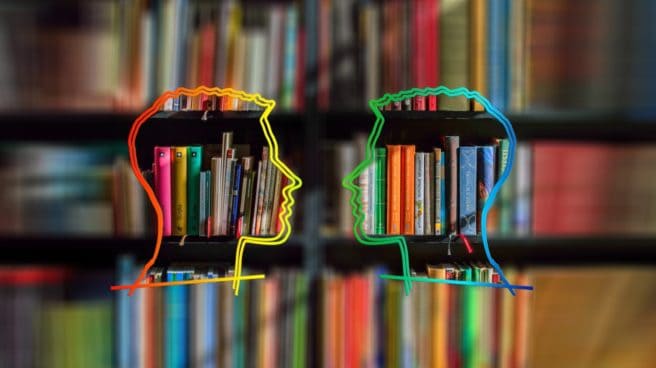
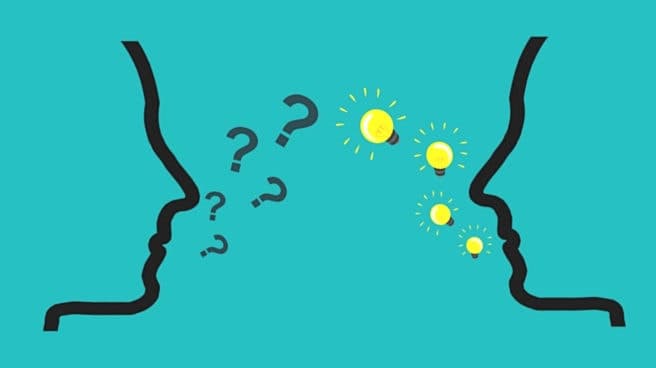
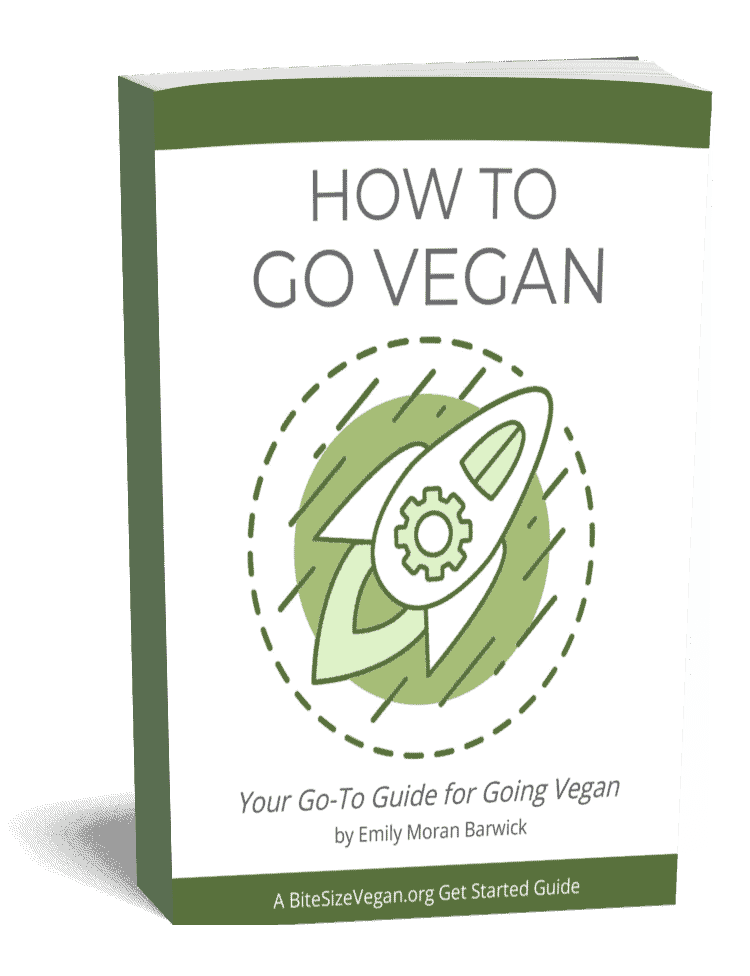
Rather than having endless arguments with non-vegans to try to persuade them, I can now just give them the link to this page and tell them i’ll discuss it with them again when they’ve read it. Might never need to discuss it as it’ll do the trick. Could save me hours.
I can never rustle up the words when I need them. Now I don’t need to. It’s been done for me.
I can get back to work on my own specialised corner of vegan philosophy – revealing the lives of the sentient beings who live in the oceans.
So glad this will be of use for you! That’s what I intend for my videos to be. Resources for further education. Many thanks.
Hi Emily! Your integrity, wisdom, and heart have always impressed me, and I made time today to listen to this speech, eager to hear what message you have for vegans. Now I’m digesting it. I’m worried that I might not be understanding you fully (which is a rare feeling, I have to say—usually your messages come across quite clearly to me) so can you let me know if this is a fair distillation of your points? I think you’re urging vegans to avoid some all-too-common traps—traps that are common because, due to human psychology, it’s hard for us to acknowledge the ways in which we miss the mark (and this phenomenon, you’re pointing out, is also why so many people resist the vegan message)—like the trap of forgetting that we didn’t use to be vegan ourselves (true for most of us, at least), which makes us less effective at reaching others; the trap of withdrawing from the non-vegan world into a vegan bubble, which can keep us from spreading more awareness & change in the non-vegan world; and the trap of spending too much time critiquing other activists. Have I got that right? If I’ve missed or misunderstood something important, thanks in advance for helping me get your meaning better!
Jennifer, Thank you so much for watching and taking the time to comment. I am SO sorry it’s taken me this long to find this and reply! I think you’re getting the main points pretty well. :) this was the hardest speech for me to write because it is so difficult to try to communicate this clearly. My initial drafts were so much worse–they were so convoluted and hard to follow that I was convinced that no one was going understand a word coming out of my mouth ;) I had a hard time following it after I’d written it down.
I wanted to give you more in-depth response, but I am writing this around 2 AM, not exactly at my sharpest:-) sometimes I can be a good thing though because it forces me to not overcomplicate.
You have really gotten I think some of the most important aspects. Just continuing to ourselves be vigilant in staying aware of our own human tendencies to shy away from action and anything unpleasant, to distance ourselves from any sense of culpability or wrongdoing, and to create a larger and larger divide between us and non-vegans. All of these things only served to slow down or damage the very cause we purport to be championing.
It’s hard to described this without making people feel that I intend for everyone to watch earthlings day day in and day out and live with slaughter houses ;) which is why I tried to make that clear but I know that this is a very dense and challenging speech to follow. I am not saying that in the sense that I am so brilliant that I’ve created something of higher learning or anything. If anything it’s my own convoluted thinking that over complicates these things ;)
Anyways, I don’t know if that was helpful or if I made it worse. But thank you for asking and reaching out and I apologize again for the delay.
Hi Emily,
Excellent video! I am very impressed with your honesty and the humor you connect with your audience. I discovered your blog while browsing through the vegan news. You are bringing up a very important point which I think many of us vegans forget: “the stigma that follows vegans”. People are intimidated by the thought of going vegan. When in fact a vegan lifestyle is the best thing since sliced bread, so to speak. I shared your video on Twitter and Facebook :) Thanks again.